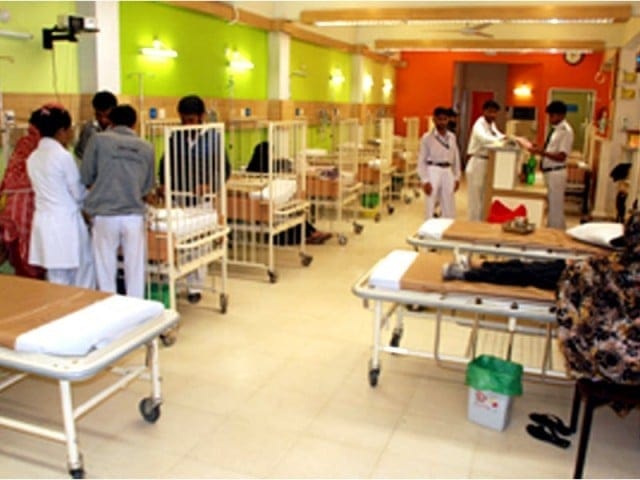KARACHI – The mosquito population has surged across Karachi and Sindh, exacerbating the spread of diseases like dengue, chikungunya, and malaria. Government negligence has worsened the situation, leading to a significant increase in hospital admissions due to these vector-borne diseases.
Following recent rains, inadequate drainage and disinfection efforts by government agencies have resulted in a dangerous rise in mosquito numbers. Medical experts report a surge in cases of dengue, malaria, and chikungunya, with symptoms including high fever, chills, severe body aches, and nausea that leave patients debilitated.
Dengue and chikungunya are both transmitted by mosquitoes breeding in clean water, while malaria-carrying mosquitoes thrive in stagnant, dirty water. Dengue often leads to a reduction in platelet counts, which can result in internal and external bleeding, whereas chikungunya causes severe pain in bones and joints but does not affect platelet levels. Malaria symptoms typically last from one week to a month, dengue for 10 to 15 days, and chikungunya generally improves within three weeks.
The intensity of these diseases often increases at night, leading to disrupted sleep and heightened discomfort. During the day, patients may find temporary relief by staying active, but the quiet of night brings intensified pain and fatigue.
In Karachi, dengue cases are rising rapidly, with the city reporting the highest numbers. Meanwhile, malaria cases are more prevalent in interior Sindh. Chikungunya cases are also on the rise, but high testing costs prevent many from getting a proper diagnosis. Consequently, patients are often treated based on symptoms or basic tests like CBC.
Medical professionals have noted a lack of accurate data on chikungunya cases, making it difficult to gauge the severity of the situation. Hospitals, including Civil Hospital and Jinnah Hospital, are reporting a daily influx of patients with symptoms of dengue, malaria, and chikungunya. Civil Hospital’s emergency in-charge, Dr. Imran Sarwar, highlighted that the hospital is seeing 40 to 50 patients daily, with an increase in chikungunya cases and a significant drop in platelet counts among dengue patients.
Dr. Faisal Javed, a general physician at Jinnah Hospital, reported that the hospital sees around 50 patients daily with symptoms of these diseases. The Secretary of the Sindh Blood Transfusion Authority, Dr. Dar Nar Jamal, mentioned that despite preemptive measures, there have been no complaints of platelet shortages yet, although there are concerns about the storage and availability of necessary blood components.
Authorities claim to be conducting fumigation efforts, but residents argue that mosquito control measures remain largely theoretical and lack practical implementation. Many areas have not witnessed effective disinfection campaigns, leaving the community vulnerable to these debilitating diseases.













